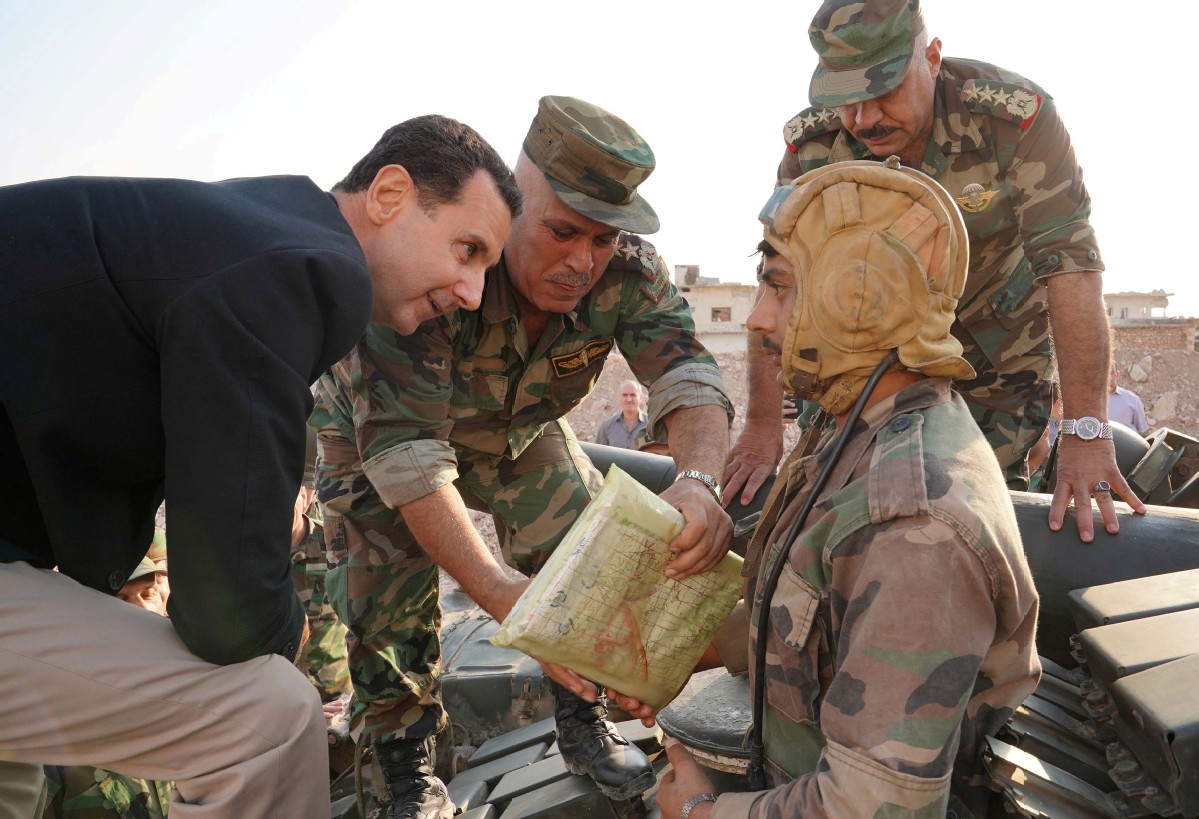Russia, Turkey clinch deal for patrols
By REN QI in Moscow and LIU XUAN in Beijing | China Daily | Updated: 2019-10-24 09:22

Forces will work together under 'historic' pact that pushes back Kurds in Syria
Russia and Turkey reached an agreement on Tuesday to conduct joint patrols in areas of northern Syria that had been held by retreating Syrian Kurdish forces.
The deal was hailed as "historic" by Turkish President Recep Tayyip Erdogan after six hours of talks with his Russian counterpart Vladimir Putin in the southern Russian city of Sochi.
The two presidents announced the deal hours ahead of a deadline for Turkey to restart its assault on Syrian Kurdish forces on the other side of its border with Syria.
Hours after the announcement, the Turkish Defense Ministry said that the United States had told Turkey early on Wednesday that the withdrawal of Kurdish militants was completed from the "safe zone" that Ankara has been intent on establishing in northern Syria.
There was no need to initiate another operation outside the current area of operation at this stage, the ministry said in a statement, effectively ending its military offensive that had begun on Oct 9.
The Russia-Turkey agreement endorses the return of Syrian President Bashar al-Assad's forces to the border alongside Russian troops, replacing the US troops who had patrolled the region for years with their former Kurdish allies.
Despite the Turkish Defense Ministry's statement, Russia and Turkey said that, under the pact, Russian military police and Syrian border guards would on Wednesday start removing the People's Protection Units, a mainly Kurdish force also known as the YPG, from an area running 30 kilometers back from the Turkish border.
Sun Degang, a researcher at the Middle East Studies Institute of Shanghai International Studies University, said the deal could offer benefits to Russia and Turkey.
"Russia acquiesces in Turkey's establishment of a 'safe zone', in exchange for Turkey's acquiescence in Russia's support of the Syrian government," he said. "The two sides have formed a parallel strategic partnership from this perspective."
With the pact agreed, Kurdish fighters have 150 hours, from noon on Wednesday, to withdraw from almost the entire northeastern border spanning the Euphrates River to the Iraqi border.
In six days, Russian and Turkish forces will jointly start to patrol a narrower, 10 km strip in the "safe zone".
The exception would be the region around the town of Qamishli at the far eastern end of the border, which has some of the largest concentrations of Kurds.
Russian and Turkish officials did not immediately say what the arrangement would be there.
Also, Turkey will keep sole control of the section in the center of the border that it captured in its invasion. It is roughly 120 km wide and 30 km deep, between the Syrian border towns of Tal Abyad and Ras al-Ayn.
Putin expressed satisfaction with the deal, which he described as "very important, if not momentous, to resolve what is a pretty tense situation which has developed on the Syrian-Turkish border", according to Russia's Tass News Agency.
He said Russia and Turkey believe that it is necessary to assist Syrian refugees in their return to their homeland, which will tangibly alleviate the social and economic burden on countries that have hosted the refugees.
"We are calling on the international community, especially the relevant United Nations agencies, to provide more active humanitarian cooperation to all returning Syrians without discrimination, politicization or preconditions," Putin said.
Erdogan said he believed the agreement would start a new era to enable "Syria's lasting stability and it being cleared of terrorism", and hoped that it could be "beneficial to our countries and to our brothers in Syria".
After the deal was announced, Putin called Assad to inform him of the memorandum of understanding underpinning the agreement.
The Syrian president thanked Putin and expressed his full support for the results achieved, and said the Syrian border guards are ready to enter the border area together with the Russian military police.
Assad said, in reference to the Kurds, that "those with separatist designs were responsible for what events have come to".
However, he also stressed his complete refusal to countenance "any invasion of Syrian land under any name or pretext" in the phone call.
Xinhua, Reuters and AFP contributed to this story.























